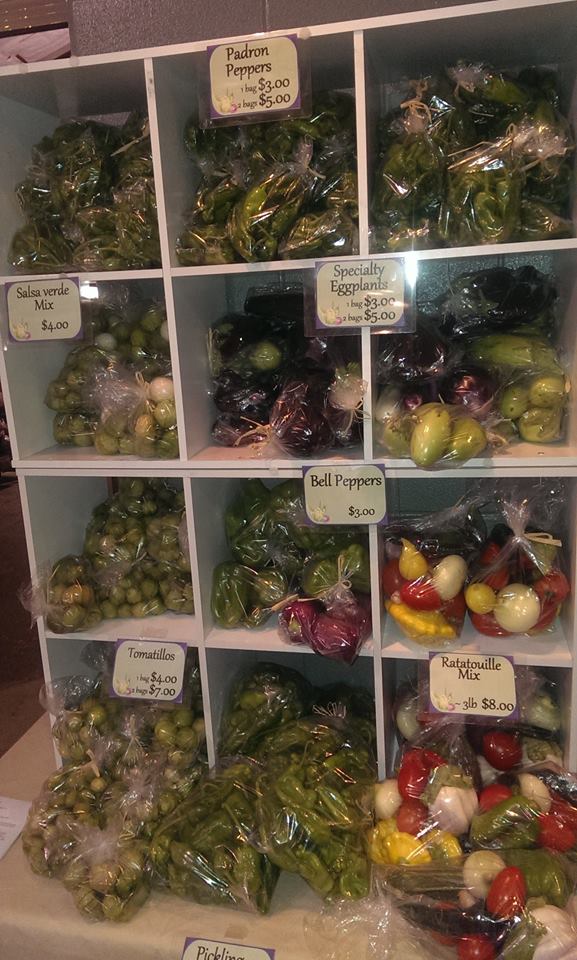Courtesy of Wally S., Wally’s Urban Market Garden, Saskatoon SK
SPIN farmers are always experimenting with niche crops to stay on top of trends, or sometimes create them. This is an advantage we have over larger scale growers – we don’t have to bet the farm to discover our next moneymaker. We can trial in small “batches”, and when we have access to more plots than we need, which is becoming more and more common. And since we are always interacting with our customers, we have a pretty good idea of what people might buy, and which customers to cater to.
There are a couple of ways to make niche crops pay off. One way is to base your business on them, like Adithya Ramachandran and Jenny Menat of Kaleidoscope Vegetable Gardens. Their half acre farm focuses on ethnic and specialty crops that aren’t available from other vendors in their area. Their niche crops include tomatillos, Moringa greens, Padrón peppers, jalapeño peppers, Roselle, Kabocha squash and Jamaican sorrel. They introduce them by providing samples and cooking instructions and their business strategy is to attract a sophisticated clientele to their market stand.

Kaleidoscope Vegetable Gardens base their business on growing niche crops. Notice they also offer recipes in a bag like Salsa verde mix and ratatouille mix.
Rob Miller, of Trefoil Gardens, has built his business on mushrooms, both cultivated and wild, and rare greens such as dock and poke, as well as violet Figs, pawpaw and sumac berries. He posts availability and recipes on his social media a week prior to market. His customers seek him out to try something new and exotic, and now he is starting to grow traditional SPIN crops to be more of a one-stop shop.
I branched out the other way, by growing specialty and ethnic crops as an add-on to my more traditional SPIN repertoire. I have had success with horse radish and fava beans. I don’t put them out at my stand – I grow these crops as a private stock just or those customers who have self-identified as more progressive eaters. So you might say I have two different product lines – one for connoisseurs and one for the mass market.
The rise of “food culture” means more people are becoming adventurous in their eating, and this means SPIN farmers can be more adventurous too. Whether you use niche crops to diversify, or define, your business, more and more SPIN farmers are finding the payoff is worth it.

